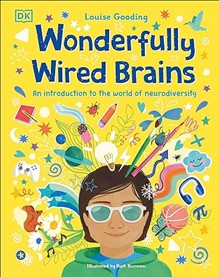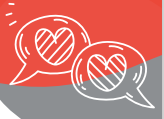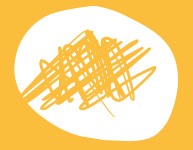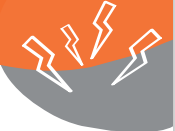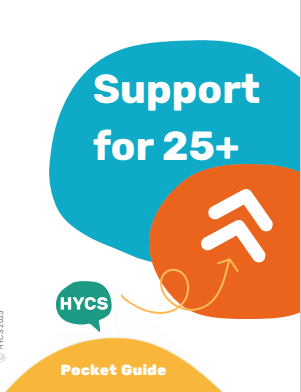Welcome to the Self Help Hub's guide to supporting services & resources - listed under this section N are resources supporting the following subject areas: Netiquette, Neurodiversity, Nightmares, am I/what is 'Normal'? and Nutrition
AMERICAN ACADEMY OF DERMATOLOGISTS
Top tips to help you stop biting your nails.
TLC FOUNDATION FOR BFRB's
BRFBs are body focused repetitive behaviours which include chronic nail biting ('Onychophagia'), hair pulling and skin picking. This website has information, tools and advice for a range of BRFB's.
Please remember, only your GP or a medical specialist can diagnose you with a condition or reassure you that you don’t have one so, if you are worried, just arrange to see your GP.
Netiquette is really all about having 'good manners' online, about respecting other users and being courteous in your posts and online activities.
Here are just some top tips that may help:
1. Treat others online as you would want to be treated; speak with kindness.
2. Remember that what you post is public and leaves a 'digital footprint' that can potentially be seen by anyone - friends, loved ones, even future employers.
3. Bear in mind that using all capital letters means that you are SHOUTING.
4. 'Take 5' and pause before posting - don't post when you are angry or highly emotional, you may well regret it later. Take time to think about it first and decide what and if you want to post when you are feeling calmer and able to think more clearly.
5. Don't post pictures or videos of others without their express permission.
BBC WEBWISE
Information and ideas.
Neurodiversity can be explained as the diversity and natural variations in neurocognitive functioning within human brains and minds and would therefore include for example ADHD, Autistic Spectrum, Dyslexia, Dyspraxia, Dyscalculia, Tourettes Syndrome and more.
You can find a whole host of neurodiversity resources under other individual listings in our Support Directory including Autism, ADHD, Dyslexia and Dyspraxia, Learning Support and Tics & Tourettes. There you can find out more about each of these areas and identify resources to positively support Neurodiverse individuals.
NEURODIVERSITY CELEBRATION WEEK - Annual
Neurodiversity Celebration Week is a worldwide initiative that challenges stereotypes and misconceptions about neurological differences. It aims to transform how neurodivergent individuals are perceived and supported by providing schools, universities, and organisations with the opportunity to recognise the many talents and advantages of being neurodivergent, while creating more inclusive and equitable cultures that celebrate differences and empower every individual.
STONEWALL
- Disabled and Neurodivergent LGBTQ+ Support | Stonewall
A range of resources and campaigning ideas to support the LGBTQ+ community including this specific support tool for individuals who are neurodivergent or disabled.
WRONG PLANET
A web community designed for individuals (and parents / professionals of those) with Autism, Asperger’s Syndrome, ADHD, PDDs, and other neurological differences. We provide a discussion forum, where members communicate with each other, an article section, with exclusive articles and how-to guides, a blogging feature, and more
BOOKS, BLOGS, VLOGS AND OTHER RESOURCES :
- Wonderfully Wired Brains by Louise Gooding
An Introduction to the World of Neurodiversity; illustrated book with easy to understand explanations of neurodiversity that would help people of any age to understand what can feel a complex area. Offers a positive, friendly look at neurodiverse brains that debunks myths and stereotypes. Includes accurate, understandable explanations of diagnoses that impact the brain, including each area of neurodiversity and what it can or does mean for anyone with that particular neurological difference. Informative, inclusive text is accompanied by colourful, modern illustrations.
BBC NEWSROUND - What you can do to help control nightmares
Ideas to help control nightmares are discussed in this Newsround video with a world sleep expert.
HEADSPACE - How to Stop Nightmares
Article talking through ideas to help stop nightmares.
DR JUSTIN HAVENS - From Nightmares to Peaceful Sleep with the Dream Completion Technique
A short and practical self-help video offering a proven technique to help you overcome nightmares and restore peaceful sleep without having to retraumatise yourself.
THE MIX - Dreams and Nightmares Article
Tips and information about why we dream and what might cause nightmares.
NHS - Nightmares and Night Terrors
Night terrors and nightmares are different and happen at different stages of sleep.
During a night terror you may talk and move about but are asleep. It's rare to remember having a night terror.
Nightmares are bad dreams you wake up from and can remember.
THE SLEEP FOUNDATION - Nightmares
'When a bad dream causes you to wake up, it’s known as a nightmare. It’s normal to occasionally have a nightmare or bad dream, but for some people, they recur frequently, disrupting sleep and negatively impacting their waking life as well.
Knowing the differences between bad dreams, nightmares, and nightmare disorder is a first step to addressing the causes of nightmares, starting appropriate treatment, and getting better sleep'. Find out more about causes and treatment here.
What is really meant by 'normal'? There isn't one way that we are all meant to be and in fact we are ALL different!
Sometimes though, we can feel self-conscious about things that make us feel different. There are loads of things that can make us feel that way such as the way we look, our interests, disabilities, our race, gender identity or sexuality and more. However, it's important to learn to build confidence and celebrate the things that make us unique!
Here are some resources to support you and help you to build that confidence:
KIDS HELPLINE VIDEO
Watch this video by Kids Helpline about being an individual and learning to embrace differences and celebrate individuality.
CHILDLINE - 'Nobody is Normal' Campaign Video
Check out the resources supporting the 'Nobody is normal' campaign with practical information and ideas.
COELIAC UK
Link here to the Gluten Free Hub by Coeliac UK for advice, information, recipes and ideas.
DIABETES UK - Healthy Eating Guide
Diabetes UK offer healthy eating advice for everyone with diabetes – whether you have type 1, type 2 or another type, including anyone newly diagnosed or told they are at risk of diabetes.
They offer advice, inspiration and tips on everything from healthy swaps, understanding food labels, how to cook healthier meals, meal planning, recipe ideas and shopping on a budget.
NHS - The Eatwell Guide
The Eatwell Guide shows how much of what we eat overall should come from each food group to achieve a healthy, balanced diet.
- Download the Eatwell Chart.
- Download the Eatwell Guide Booklet.
If you use assistive technology (such as a screen reader) and need a version of this Eat Well chart or Eatwell guide in a more accessible format, email publications@phe.gov.uk. Please say what format you need and what assistive technology you use.
NHS - 8 Healthy Eating
8 practical tips from the NHS to cover the basics of healthy eating which may help you make healthier choices.
NHS - Vegan Diet
A vegan diet contains only plants (such as vegetables, grains, nuts and fruits) and foods made from plants. Vegans do not eat foods that come from animals, including dairy products and eggs. You can get most of the nutrients you need from eating a varied and balanced vegan diet.
THE VEGAN SOCIETY
Advice, information and recipe ideas for vegans.
- Download a vegan version of the Eatwell Guide.
THE VEGETARIAN SOCIETY
Advice, information and recipe ideas for vegetarians.
- Download a vegetarian version of the Eatwell Guide.
